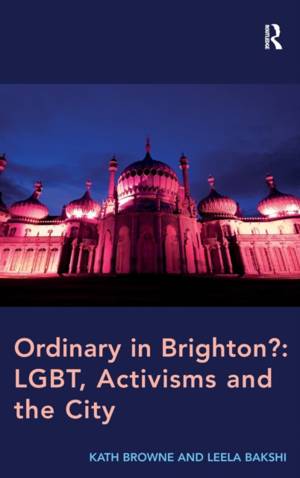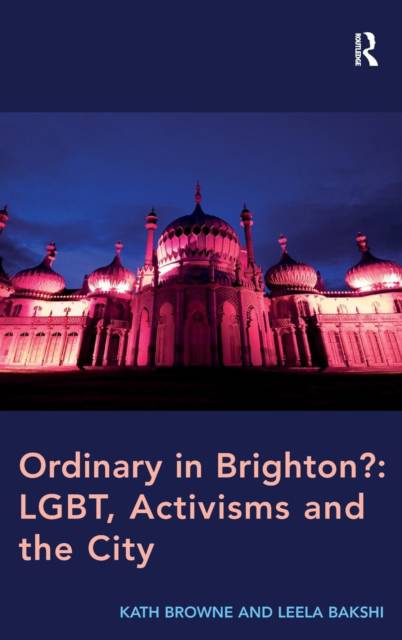
- Retrait gratuit dans votre magasin Club
- 7.000.000 titres dans notre catalogue
- Payer en toute sécurité
- Toujours un magasin près de chez vous
- Retrait gratuit dans votre magasin Club
- 7.000.0000 titres dans notre catalogue
- Payer en toute sécurité
- Toujours un magasin près de chez vous
290,45 €
+ 580 points
Description
Ordinary in Brighton? offers the first large scale examination of the impact of the UK equalities legislation on lesbian, gay, bi- and trans (LGBT) lives, and the effects of these changes on LGBT political activism. Using the participatory research project, Count Me In Too, this book investigates the material issues of social/spatial injustice that were pertinent for some - but not all- LGBT people, and explores activisms working in partnership that operated with/within the state. Ordinary in Brighton? explores the unevenly felt consequences of assimilation and inclusion in a city that was compelled to provide a place (literally and figuratively) for LGBT people. Brighton itself is understood to be exceptional, and exploring this specific location provides insights into how place operates as constitutive of lives and activisms. Despite its placing as 'the gay capital' and its long history as a favoured location of LGBT people, there is very little academic or popular literature published about this city. This book offers insights into the first decade of the 21st century when sexual and gender dissidents supposedly became ordinary here, rather than exceptional and transgressive. It argues that geographical imaginings of this city as the 'gay capital' formed activisms that sought positive social change for LGBT people. The possibilities of legislative change and urban inclusivities enabled some LGBT people to live ordinary lives, but this potential existed in tension with normalisations and exclusions. Alongside the necessary critiques, Ordinary in Brighton? asks for conceptualisations of the creative and co-operative possibilities of ordinariness. The book concludes by differentiating the exclusionary ideals of normalisation from the possibilities of ordinariness, which has the potential to render a range of people not only in-place, but commonplace. All royalties from this book will be donated to Allsorts Youth Project, Brighton & Hove LGBT Switchboa
Spécifications
Parties prenantes
- Auteur(s) :
- Editeur:
Contenu
- Nombre de pages :
- 256
- Langue:
- Anglais
Caractéristiques
- EAN:
- 9781472412942
- Date de parution :
- 28-10-13
- Format:
- Livre relié
- Format numérique:
- Genaaid
- Dimensions :
- 156 mm x 234 mm
- Poids :
- 539 g

Les avis
Nous publions uniquement les avis qui respectent les conditions requises. Consultez nos conditions pour les avis.






